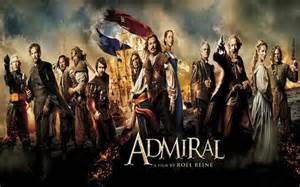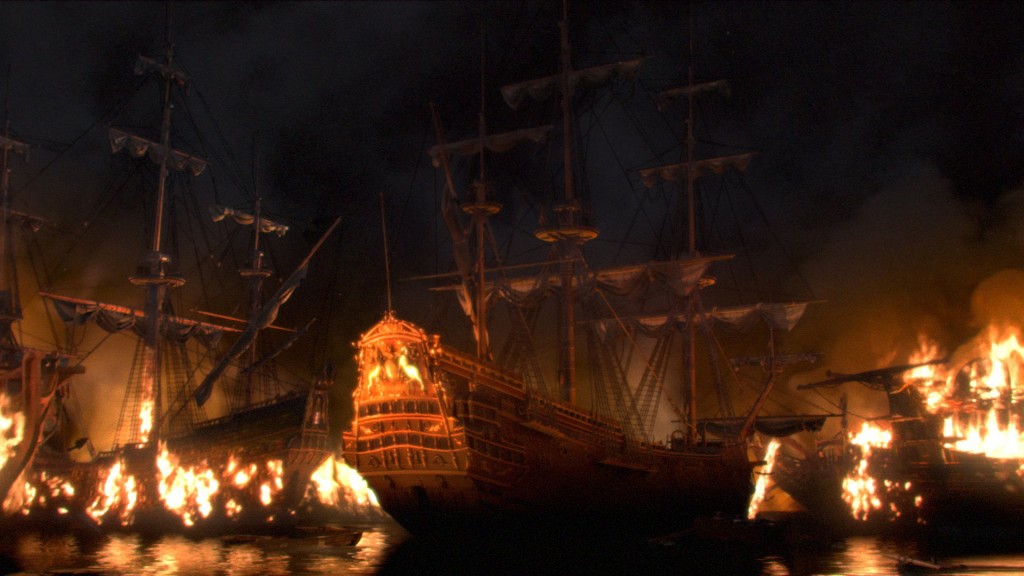Pre-Napoleonic era wars are veiled in obscurity for all but historians and fans of history. So it seems incredible to most people that the Dutch were once a formidable power in Europe, and even developed some important military innovations (it was they who first fielded platoon-sized units, for instance).
This is a well-crafted film that seems to have drawn more from actual history than from convention, cliche` and ubiquitous Hollywood tropes. It highlights a period in the life of Michiel de Ruyter, a 17th Century naval tactician who led the Dutch Navy to impressive victories over the British and French.
Similar to Napoleon Bonaparte over a century later, de Ruyter was a commoner who rose through the ranks to a field-grade commission on his own ability and execution, among a typical European hierarchy built upon caste and dominated by the nobility. During the tenure of De Witt as prime minister of the Dutch Republic, de Ruyter is promoted to admiral, and leads the Dutch Fleet to glory.
CGI was used to depict a top-down view of the naval battles, which looked like something you might see in a PC strategy game. I consider this a clever idea…but it was fumbled in the execution. It does provide an idea of the opposing forces, but usually does little to depict how the battles played out. As an erstwhile armchair historian, using the CGI strategic view to better effect would have rendered this film a tour de force of audio-visual military history.
I’m far from an afficionado on Netherlands politics in any century, but the political subplot rang true. It also provides an historic lesson relevant to the situation citizens of the USA find themselves in right now (not that anybody from either major side has any interest in learning from history). The Dutch abandoned self-rule by representative government and volunteered for the chains of an oligarchy (a monarchy, on the surface). The film also provides a tiny glimpse of the sort of consequences you will suffer by trading away your freedom for promises of unity, security, ethnic pride, or whatever magic beans strike you as a good trade during a fever-peak of emotion.
The prince of the Netherlands, who would be elevated to king, seems entirely familiar to anyone with even a rudimentary knowledge of European royalty (maybe any royalty anywhere). The film makers made it clear enough for adults in the audience what sort of indulgences the prince harbored, but I appreciated that his faggotry wasn’t smeared in our faces to the point that it distracts from the main plot.
It’s a Dutch film, and so most of the dialog is Dutch, with English subtitles.


